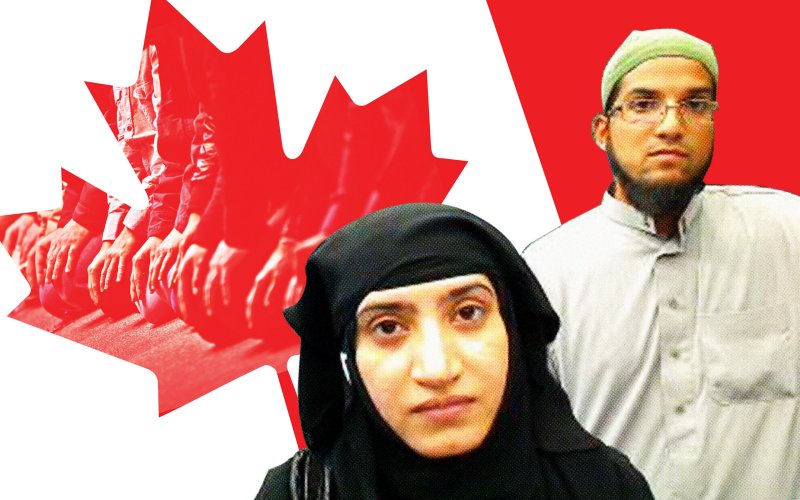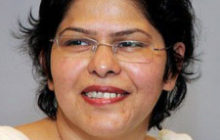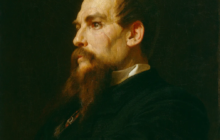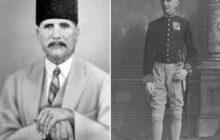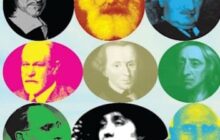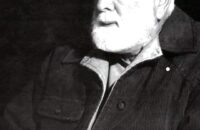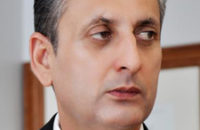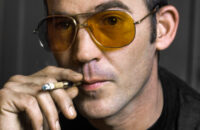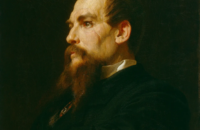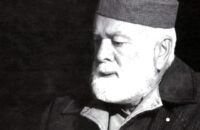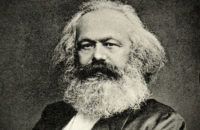By Dana Kennedy
The border that terrorists are most likely to cross into the United States is not the one with Mexico, but Canada.
Ignore growing Muslim fundamentalism and extremism in Canada at your peril. That’s the message an increasingly vocal number of moderate and secular Canadian Muslims and counterterrorism experts want to send to the United States and the rest of the world.
The attention focused last week on the Ontario branch of al-Huda, the same religious school the San Bernardino killer Tashfeen Malik attended in Pakistan, is just one example of increasing Saudi-funded Islamic fundamentalism all over Canada.
Radical mosques with reported ties to terrorist organizations have flourished in and around Toronto as well as in Montreal, while some politicians, including Canada’s new prime minister, Justin Trudeau, have been reluctant to constrain or even criticize these groups, defending them in the name of diversity and multiculturalism.
For instance, the Mississauga, Ontario, branch of the al-Huda school closed for at least one day last week after CBC reported that four girls who studied there left Canada to join the so-called Islamic State.
“Farhat Hashmi runs al-Huda and denies that jihad is being taught there,” Dr. Farzana Hassan of the moderate Canadian Muslim Congress told The Daily Beast. “She’s not telling the truth. I’ve listened to her podcasts in the Urdu language. She praises jihad and says women should participate. There is a possibility of impressionable young women hearing that and being radicalized.”
Canada’s new telegenic Prime Minister Trudeau, 43, the ultimate anti- Donald Trump, was pictured last week warmly greeting the first of an estimated 25,000 Syrian refugees arriving between now and March 2016. (Canada’s population is about one-tenth of the United States, so that’s as if 250,000 Syrian refugees were arriving in the U.S. in the space of just four months.)
But the feel-good photo op for Trudeau and his Liberal Party could portend trouble for Canada, according to Brian Levin, a former NYPD officer turned counter-terrorism and extremism specialist at San Bernardino State.
“People talk about Mexico,” said Levin. “They totally overlook Canada. Nobody has any idea what’s going on up there. In my opinion it’s a bigger threat than Mexico.”
Given Prime Minister Trudeau’s good looks, his political pedigree, a one-time TV-anchor wife who the New York Post called “the hottest First Lady in the world,” and his headline-making cabinet featuring many women and minorities, he recently scored a spread in Vogue.
But he’s come under fire at home for what some see as pandering to the Muslim vote and an extreme political correctness. He has said he will revamp aspects of C-51, the controversial anti-terrorism bill that the Conservative Party enacted this year.
Trudeau visited mosques all over Canada as part of his political campaigns leading up to his recent win. He visited a notorious Montreal mosque in 2011, a month before the U.S. classified it as an al Qaeda recruitment center. He addressed a mosque with ties to Hamas and, unlike his Conservative Party predecessor, former Prime Minister Stephen Harper, he defends the right for Muslim Canadian women to wear the niqab, a veil covering the face, when they take their citizenship oaths.
In 2011 Trudeau objected to the word “barbaric” in a Canadian citizenship guide for new immigrants that included the passage: “Canada’s openness and generosity do not extend to barbaric cultural practices that tolerate spousal abuse, honor killings, female genital mutilation, forced marriage or other gender-based violence.”
“There’s nothing the word ‘barbaric’ achieves that the words ‘absolutely unacceptable’ would not have achieved,” said Trudeau, who later retracted his statements after a Twitter firestorm.
Trudeau’s key aide helping him nail the Canadian Muslim vote was Omar Alghabra, 46, a Saudi-born Syrian immigrant. Alghabra was once president of the controversial Canadian Arab Foundation which lost government funding in 2009 because of its support for groups like Hezbollah and Hamas, which are officially listed as terrorist groups in Canada. Trudeau just named Alghabra as his Parliamentary Secretary for Foreign Affairs (Consular).
Alghabra once denounced Toronto’s police chief for taking part in a charity walk for Israel and also said the chief’s official visit to Israel was akin to going to meet with Saddam Hussein. When Palestine Liberation Organization (PLO) leader Yasser Arafat died, Alghabra put out a press release expressing “sorrow and regret.” He condemned a major Canadian newspaper for using the term “terrorist” to describe Islamist terrorist groups like al-Aqsa Martyrs Brigade.
Canada has had its share of terrorist plots, some of them aimed at the United States.
The so-called Toronto 18 were arrested in 2006 before the could carry out planned attacks involving bombs, storming the Parliament, the Canadian Security Intelligence Service, and beheading the prime minister. According to former NYPD counter-terrorism analyst Mitchell Silber in his book The Al Qaeda Factor: Plots Against the West, members of this group were also linked to an infamous British jihadist, Aabid Khan, who wanted to use Canada as a staging area for attacks on the United States. Two men in Atlanta, Georgia, were arrested after sending him video of potential targets in and around Washington, D.C.
Algerian-born al Qaeda member Ahmed Ressam, the so-called Millennium Bomber, lived for awhile in Montreal while plotting to bomb tLos Angeles International Airport in 1999. Suspicious border agents arrested him after they found explosives in his car on a ferry from Vancouver to Washington State. In retrospect, the Ressam operation staged out of Canada was seen in counter-terror circles as a small-scale prelude to the horrors of the 9/11 attacks.
The mastermind of the attacks on New York and Washington had plotted to carry out a second wave using at least one naturalized Canadian citizen originally from Tunisia, Abderraouf Ben Habib Jdey, also known as Farouq al-Tunisi. The United States has a $5 million reward on Jdey’s head, noting on the State Department’s official website, “Authorities remain concerned that Jdey may attempt to return to Canada or the United States to plan or participate in a terrorist attack.”
Last year Michael Zehaf-Bibeau, a Canadian convert to Islam and the son of a Libyan father, fatally shot a soldier in Ottawa and stormed Parliament before being killed by police.
But, at least so far, homegrown attacks in Canada are fairly rare.
Mubin Shaikh, a former Muslim extremist turned counter-terrorism operative who went undercover for Canadian intelligence to infiltrate the Toronto 18, says the low incidence of terror attacks is precisely because of Canada’s policy of multiculturalism.
“Our multiculturalism is a protective factor and one of the reasons why Canada has seen lower numbers [of terrorist incidents] is largely due to the fact that Muslims are treated very well,” Shaikh told The Daily Beast.
“This is the whole point, that when you actively prevent isolation and marginalization, so too do you see a low level of extremism,” said Shaikh. “The problem in the U.K. is that although there is multiculturalism, there is a colonial history that grievances-centered people can take advantage of.”
Others disagree and say multiculturalism has spawned a more subtle type of fundamentalism taking over some communities to the point where they look like areas of the Middle East with a corresponding mind-set—and dangers.
A public middle school not far from Toronto made news in 2012 when the principal bowed to local pressure and allowed the cafeteria to be used as a mosque for Friday prayers led by a local imam known for his fundamentalist rhetoric. The girls have to sit behind the boys and menstruating girls are forced to stand in the back.
The notorious Toronto imam Aly Hindy of the influential Salaheddin mosque is well known for calling the 9/11 attacks a CIA operation, praising the Toronto 18 terrorists, calling homosexuality “invented garbage” and mocking Canada.
When denouncing what he called “illegal sexual acts,” Hindy once added, “Illegal means illegal in Islam, not illegal in the Canadian law, because everything is legal in the Canadian law, except children. Other than that, they allow everything.”
A Muslim woman who took legal action so she could wear the face-covering niqab while taking her citizenship oath made headlines twice, once when she sued unsuccessfully in 2011 and again when the ban was overturned in her favor this year.
A 2005 proposal by a former National Democratic Party attorney general to allow Sharia in Ontario was overturned after an organized protest mainly by moderate Muslims.
“This is all a Saudi-funded cancer spreading across the world,” says Tarek Fateh, the controversial founder of the Muslim Canadian Congress who calls himself a secular Muslim. “At least those of us up in Canada understand it and understood it before 9/11. Americans have no idea. It’s going to hit them like a freight train.”
The Pakistani-born Raheel Raza, 65, who calls herself a “liberal Canadian Muslim” and is a Muslim Canadian Congress member, said the influence of money funneled into Islamic centers and organizations in Canada from Saudi Arabia is growing and has also had an impact on Pakistani Muslims who aren’t even Arab.
According to a July 2015 report in the Globe and Mail, the Saudi government is donating hundreds of thousands of petrodollars to finance new private Islamic schools in Canada or upgrade existing ones, often making to Canadian imams in charge of shabby mosques offers they can’t refuse.
“You walk down some of the streets in Mississauga [Ontario] and you’d think you were in Saudi Arabia,” Raza, the author of Their Jihad, Not My Jihad: A Muslim Canadian Woman Speaks Out, told The Daily Beast. “These are Pakistanis wearing the burqas and the Arab clothes. We’re not even Arabs, but Saudi Arabia has made Muslims who aren’t Arabs feel inferior. Kids get approached by these aggressive young Muslim youth groups. The joke in my house is that we tell our son to say he’s Jewish if anyone comes up to him.”
Raza left Pakistan in 1989 with her young family for Canada shortly after Mohammed Zia-ul-Haq came into power and forced a more extreme form of Islamic law in her home country. Raza told The Daily Beast this week that she’s now upset and disillusioned to see a similar extremism starting to flower in Canada.
In an essay she wrote in 2013, Raza said that she was initially impressed with Canada’s three-decade-long philosophy of multi-culturalism, until she began to see a pattern of increasingly troubling signs that it was not fostering loyalty and assimilation among Muslim immigrants.
“The mother of one of my children’s classmates of Pakistani origin asked me why my kids sang the Canadian national anthem when it is haram, forbidden,” Raza wrote. “Upon asking where she got that information, she confessed that the imam of the local mosque had told the congregation that it was against the faith to sing the national anthem, or, indeed, to show loyalty to Canada.” Raza said she also found evidence that more mosques were giving sermons against loyalty to Canada.
Raza and her colleagues flew to Washington, D.C. after the San Bernardino shootings last week and nailed a “Declaration of Muslim Reform” on the biggest mosque in the district—saying the time has come for moderate or secular Muslims to speak up and no one in the U.S. is doing it right.
“This is the tipping point,” Raza said. “Moderate Muslims have to speak up. This fundamentalism and extremism is not Islam. We have to name it and shame it. It’s up to the Muslims to do it.”
And in Canada, it would seem, that need is especially urgent.
—with additional reporting by Christopher Dickey

